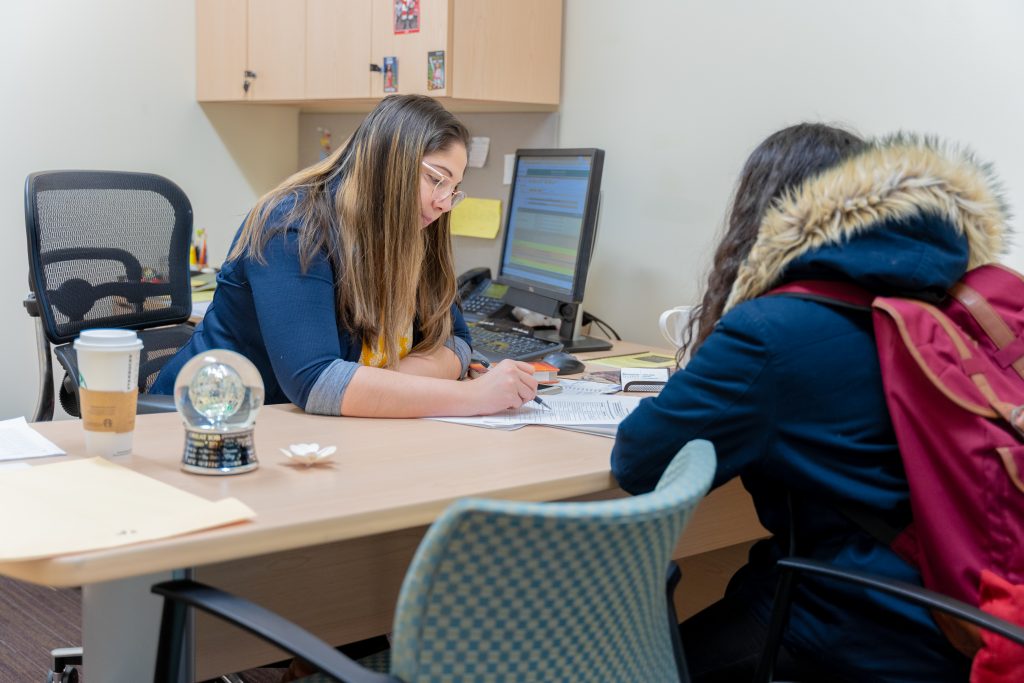
In 2018, Binghamton University provided Educational Opportunity Program (EOP) enrollment to 140 freshmen, according to SUNY records. Now, the program is in danger of seeing budget cuts.
The proposed state budget would cut funding for the EOP across the SUNY system, which means the University’s EOP could see a decrease in its next cohort of students.
“This is not a game,” tweeted the University’s EOP account on Feb. 9. “This incoming [Binghamton Enrichment Program] cohort will be the smallest in decades if we lose [state] funding for the 2019-20 year. Closed mouths don’t get fed.”
EOP, a SUNY program that aims to provide access, academic assistance and financial aid to students who may qualify as economically disadvantaged or are first-generation college students, has been in operation at BU for more than 50 years. The program’s services include providing career counseling, academic assistance, tutoring and supplemental instruction. If the state budget cut gets passed, the EOP may be forced to cut some of its services.
Karima Legette, interim director of the EOP at BU, wrote in an email that this could be the second budget cut imposed on the program in the last two years.
“The current 2019-20 New York state executive budget was proposed by Gov. Cuomo and will need to be voted on by state legislators,” Legette wrote. “The proposed cut to EOP is not isolated and sadly not unusual; all 48 EOP programs of the SUNY system are funded by New York state. Each program would be affected if the proposed budget were to be passed.”
Some EOP students are concerned about how the budget cuts could affect them. Zion Baldwin, an EOP student and a sophomore majoring in English, wrote in an email that the cuts could mean that minority students see fewer resources and face a harder journey to graduation.
“The EOP program has given me a safe space for the past year and a half to study and learn effectively,” Baldwin wrote. ”EOP has invested into my education by making textbooks completely affordable. I’m grateful for EOP, because without this program, I would not get work done effectively, nor would I have a strong GPA.”
Tashawna Harris, an EOP student and an undeclared sophomore, wrote that EOP has provided her with a sense of security since she’s entered college.
“College is extremely important to me and to my family,” Harris said. “The generosity of the EOP program allowed me the access to education without having to worry so much about how I would pay for college. Access to education is difficult enough, especially for minority students, so having a program that advocates for my right to have affordable access to education is super important to me.”
While it’s unclear whether the proposed budget will pass with the EOP cuts, Legette wrote that students, staff and EOP representatives in Albany have a plan to fight against the proposed cut, including a social media campaign and EOP Advocacy Day, when students go to Albany to speak with legislators and senators about the importance of EOP. According to Legette, University students interested in supporting the program can also contact New York State Assembly and Senate policymakers to voice their concerns.
Nevertheless, the threat of cuts to the EOP budget has Harris worried. She wrote that the cuts would potentially force students to make tough decisions on their education.
“With the lack of money and funding for EOP students, a lot of us would have to make pretty difficult choices,” Harris wrote. “Leaving school isn’t an option for me, though. I’ve worked hard to be in school, and EOP has worked hard to keep us here. Having this opportunity cut or taken away is wrong and puts minority students and others who don’t have the financial means to attend college without EOP in an unfair situation that could very well affect all of our livelihoods.”


